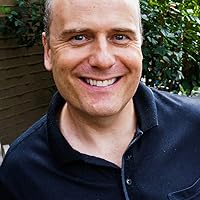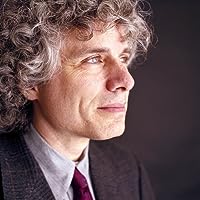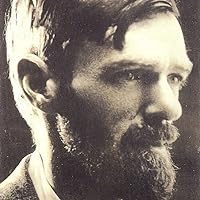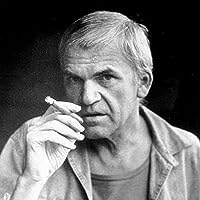Ethics Quotes
Quotes tagged as "ethics"
Showing 1,621-1,650 of 1,865

“If you want to know where you would have stood on slavery before the Civil War, don’t look at where you stand on slavery today. Look at where you stand on animal rights.”
―
―

“Very little of the great cruelty shown by men can really be attributed to cruel instinct. Most of it comes from thoughtlessness or inherited habit. The roots of cruelty, therefore, are not so much strong as widespread. But the time must come when inhumanity protected by custom and thoughtlessness will succumb before humanity championed by thought. Let us work that this time may come.”
―
―

“By acquiescing in an act that causes such suffering to a living creature, who among us is not diminished?”
―
―

“Improving the world can be a nasty and ugly and difficult and dangerous business...because when you improve the world, you threaten the entrenched interests of evil people.”
―
―

“The Hedonistic Imperative outlines how genetic engineering and nanotechnology will abolish suffering in all sentient life. This project is ambitious but technically feasible. It is also instrumentally rational and ethically mandatory. The metabolic pathways of pain and malaise evolved only because they once served the fitness of our genes. They will be replaced by a different sort of neural architecture. States of sublime well-being are destined to become the genetically pre-programmed norm of mental health. The world's last aversive experience will be a precisely dateable event.”
―
―

“Lewis Richardson wrote that his quest to analyze peace with numbers sprang from two prejudices. As a Quaker, he believed that "the moral evil in war outweighs the moral good, although the latter is conspicuous." As a scientist, he thought there was too much moralizing about war and not enough knowledge. "For indignation is so easy and satisfying a mood that it is apt to prevent one from attending to any facts that oppose it. If the reader should object that I have abandoned ethics for the false doctrine that 'tout comprendre c'est tout pardonner' [to understand all is to forgive all], I can reply that it is only a temporary suspense of ethical judgment, made because 'beaucoup condamner c'est peu comprendre' [to condemn much is to understand little]." (p. 200)”
― The Better Angels of Our Nature: Why Violence Has Declined
― The Better Angels of Our Nature: Why Violence Has Declined

“those, who are believed to be most self—abased and humble, are generally in reality the most ambitious and envious”
―
―

“The only justice is to follow the sincere intuition of the soul, angry or gentle. Anger is just, and pity is just, but judgement is never just.”
― Studies in Classic American Literature
― Studies in Classic American Literature

“[...] like any human practices, those of religions are not exempt from ethical questioning. Rituals and rites in groups change behavior, sometimes for the better, sometimes for the worse. For the madness of crowds is a very close cousin to the fervor or congregations and the martial spirit of armies.”
― Mirror, Mirror: The Uses and Abuses of Self-Love
― Mirror, Mirror: The Uses and Abuses of Self-Love

“A culture capable of imagining complexly is a humble culture. It acts, when it has to act, as late in the game as possibl, and as cautiously, because it knows its girth and the tight confines of the china shop it's blundering into. And it knows that no matter how well prepared it is -- no matter how ruthlessly it has held its projections up to intelligent scrutiny -- the place it is headed for is going to very different from the place it imagined. The shortfall between the imagined and the real, multiplied by the violence of one's intent, equals the evil one will do.”
― The Braindead Megaphone
― The Braindead Megaphone

“Science tries to record and explain the factual character of the natural world, whereas religion struggles with spiritual and ethical questions about the meaning and proper conduct of our lives. The facts of nature simply cannot dictate correct moral behavior or spiritual meaning.”
― The Hedgehog, the Fox & the Magister's Pox: Mending the Gap Between Science & the Humanities
― The Hedgehog, the Fox & the Magister's Pox: Mending the Gap Between Science & the Humanities

“Moral war für ihn [..] das unendliche Ganze der Möglichkeiten zu leben.”
― The Man Without Qualities
― The Man Without Qualities

“In modern times an idea can be refuted, yes, but not retracted”
― The Unbearable Lightness of Being
― The Unbearable Lightness of Being

“When we lift our forks, we hang our hats somewhere. We set ourselves in one relationship or another to farmed animals, farm-workers, national economies, and global markets. Not making a decision--eating 'like everyone else'--is to make the easiest decision, a decision that is increasingly problematic.”
― Eating Animals
― Eating Animals

“With discipline, you are able to maintain a higher tolerance for frustration, obstacles and negative emotions. Self-discipline allows you to obtain better health, better finances and a good work ethic, and it allows you to reach your most difficult goals more efficiently. The more disciplined you become, the more easier life gets, or the higher the degree of discipline, the greater your success.”
― VishwaSutras: Universal Principles For Living: Inspired by Real-Life Experiences
― VishwaSutras: Universal Principles For Living: Inspired by Real-Life Experiences

“whether they knew of didn't know is not the main issue; the main issue is whether a man is innocent because he didn't know. (...) by beating himself on the chest and proclaiming, "My conscience is clear! I did not know! I was a believer!" Isn't his "I did not know I was a believer!" at the very root of his irreparable guilt?”
― The Unbearable Lightness of Being
― The Unbearable Lightness of Being

“It is a tragicomic fact that our proper upbringing has become an ally of the secret police. (...) The "Tell the truth!" imperative drummed into us so automatically that we feel ashamed of lying even to a secret policeman.”
― The Unbearable Lightness of Being
― The Unbearable Lightness of Being

“You know, kid, ethics isn't about choosing between right and wrong; it's about choosing between grey and grey. It's about choosing between two equally desirable but mutually exclusive courses of action. Freedom or security? Courage or comfort? Self-examination or blissful happiness? Column A or Column B?”
― Happiness
― Happiness

“We opt to be seen as ‘right’ in the eyes of everyone else, rather than doing what’s ‘right’ in light of the situation.”
―
―

“The people who support and defend those accused of child sexual abuse indiscriminately, those who join organizations dedicated to defending people who are accused of child sexual abuse with no screening whatsoever to keep out those who are guilty as charged are likewise not necessarily people engaged in an objective search for the truth. Some of them can and do use deceit, trickery, misstated research, harassment, intimidation, and charges of laundering federal money to silence their opponents.
Those of us who are the recipients of bogus lawsuits and frivolous ethics charges and phony phone calls and pickets outside our offices must know more than the research to survive such tactics. We must know something about endurance and about the importance of refusing to be intimidated.
Confessions of a Whistle-Blower: Lessons Learned Author: Anna C. Salter. Ethics & Behavior, Volume 8, Issue 2 June 1998”
―
Those of us who are the recipients of bogus lawsuits and frivolous ethics charges and phony phone calls and pickets outside our offices must know more than the research to survive such tactics. We must know something about endurance and about the importance of refusing to be intimidated.
Confessions of a Whistle-Blower: Lessons Learned Author: Anna C. Salter. Ethics & Behavior, Volume 8, Issue 2 June 1998”
―

“Not the last time in Western history, the revolutionaries armed themselves with a new religion to steel themselves for greater outrageous.”
― Civilization: The West and the Rest
― Civilization: The West and the Rest

“One peculiarity of our present [ethical] climate is that we care much more about our rights than about our 'good'. For previous thinkers about ethics, such as those who wrote the Upanishads, or Confucius, or Plato, or the founders of the Christian tradition, the central concern was the state of one's soul, meaning some personal state of justice or harmony. Such a state might include resignation or renunciation, or detachment, or obedience, or knowledge, especially self-knowledge. For Plato there could be no just political order except one populated by just citizens.... Today we tend not to believe that; we tend to think that modern constitutional democracies are fine regardless of the private vices of those within them. We are much more nervous talking about our good: it seems moralistic, or undemocratic, or elitist. Similarly, we are nervous talking about duty. The Victorian ideal of a life devoted to duty, or a calling, is substantially lost to us. So a greater proportion of our moral energy goes to protecting claims against each other, and that includes protecting the state of our soul as purely private, purely our own business.”
― Being Good: A Short Introduction to Ethics
― Being Good: A Short Introduction to Ethics

“For we conceive it as the aim of a philosopher, as such, to do somewhat more than define and formulate the common normal opinions of mankind. His function is to tell men what they ought to think, rather than what they do think: he is expected to transcend Common Sense in his premises, and is allowed a certain divergence from Common Sense in his conclusions. It is true that the limits of this deviation are firmly, though indefinitely, fixed: the truth of a philosopher's premises will always be tested by the acceptability of his conclusions: if in any important point he be found in flagrant conflict with common opinion, his method is likely to be declared invalid. Still, though he is expected to establish and concatenate at least the main part of the commonly accepted moral rules, he is not necessarily bound to take them as the basis on which his own system is constructed. Rather, we should expect that the history of Moral Philosophy--so far at least as those whom we may call orthodox thinkers are concerned--would be a history of attempts to enunciate, in full breadth and clearness, those primary intuitions of Reason, by the scientific application of which the common moral thought of mankind may be at once systematized and corrected.”
― The Methods of Ethics, 7th Edition
― The Methods of Ethics, 7th Edition

“All, or the greatest part of men that have aspired to riches or power, have attained thereunto either by force or fraud, and what they have by craft or cruelty gained, to cover the foulness of their fact, they call purchase, as a name more honest. Howsoever, he that for want of will or wit useth not those means, must rest in servitude and poverty.”
―
―

“He that doth not as other men do, but endeavoureth that which ought to be done, shall thereby rather incur peril than preservation; for whoso laboureth to be sincerely perfect and good shall necessarily perish, living among men that are generally evil.”
―
―

“There are normal times when it is wholly admirable to be steadfast, resolute, unconflicted, and therefore when integrity is unmistakenly a virtue. The person of integrity knows what to do, and does it. But as we have been exploring, there are also times when certainty and single-mindedness indicate something less admirable: a deafness to voices that should be heard or a blindness to aspects of a situation that need to be considered.”
― Mirror, Mirror: The Uses and Abuses of Self-Love
― Mirror, Mirror: The Uses and Abuses of Self-Love

“How did Ixtel become real for me? The world is full of Ixtels who I can help without hurting my father. Why this one? How was it her suffering that touched me? Father. I feel connected to her through my father's actions. I feel an obligation to right my father's wrong. But why? Shouldn't my father's welfare come first? His welfare is my welfare. How does one weigh love for a parent against the urge to help someone in need? I feel like what is right should be done no matter what. This lack of doubt makes me feel inhuman. But it is not a question of my head for once. I hear the right note. I recognize the wrong note. Maybe the right action is a lake like this one, green and quiet and deep.”
― Marcelo in the Real World
― Marcelo in the Real World

“Ethics is nothing other than reverence for life because God is within every other human being you come in contact with either physically, or emotionally. Living with reverence for life is attuning goodliness, which is a state of godliness.”
― VishwaSutras: Universal Principles For Living: Inspired by Real-Life Experiences
― VishwaSutras: Universal Principles For Living: Inspired by Real-Life Experiences
All Quotes
|
My Quotes
|
Add A Quote
Browse By Tag
- Love Quotes 97k
- Life Quotes 75.5k
- Inspirational Quotes 72.5k
- Humor Quotes 43.5k
- Philosophy Quotes 29.5k
- Inspirational Quotes Quotes 27k
- God Quotes 26k
- Truth Quotes 23.5k
- Wisdom Quotes 23.5k
- Romance Quotes 23k
- Poetry Quotes 22k
- Death Quotes 20k
- Happiness Quotes 18.5k
- Life Lessons Quotes 18.5k
- Hope Quotes 18k
- Faith Quotes 18k
- Quotes Quotes 16.5k
- Inspiration Quotes 16.5k
- Spirituality Quotes 15k
- Religion Quotes 15k
- Motivational Quotes 15k
- Writing Quotes 14.5k
- Relationships Quotes 14.5k
- Life Quotes Quotes 14k
- Love Quotes Quotes 13.5k
- Success Quotes 13.5k
- Time Quotes 12.5k
- Motivation Quotes 12k
- Science Quotes 11.5k
- Knowledge Quotes 11k

